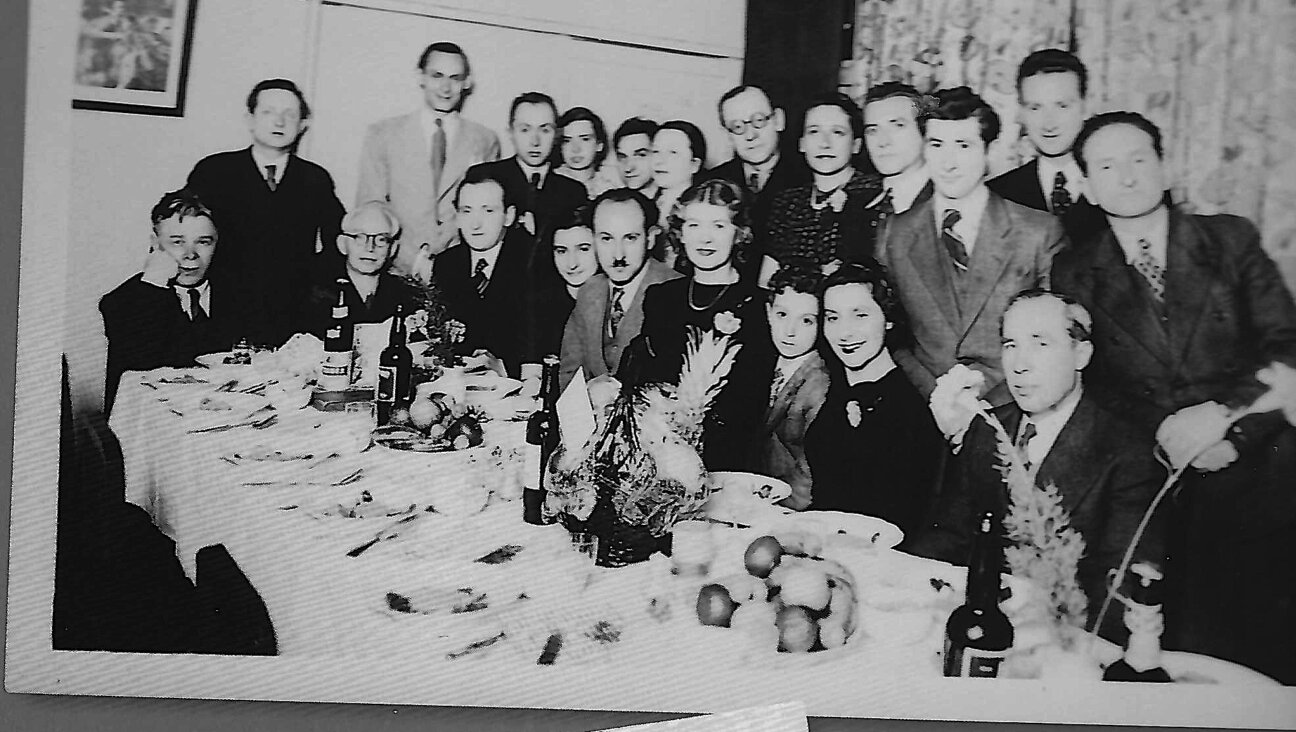Rabbis Focus on Professional Development
Moses was probably an introvert.
That was one of the conclusions reached by the rabbis who gathered at a pro fessional development seminar in Manhattan this summer. As part of the seminar, the rabbis took the Myers-Briggs personality test, which measures how introspective, intuitive and perceptive people are, to better understand how they operated in challenging workplace situations. Then they tried to predict how some of the founders of their company — and some of Judaism’s forefathers — would have fared on the same test.
That rabbis can benefit from learning management techniques more commonly used in the corporate world is a central tenet of a new program called the Legacy Heritage Rabbinic Enrichment Initiative, hosted by the Jewish Theological Seminary. This summer, 14 “mid-career” Conservative movement rabbis from around the country spent 10 days in New York immersed in a program that combined managerial training with more traditional forms of rabbinical study.
“Usually you just go and study a lot of text,” said Felipe Goodman, who leads Temple Beth Shalom in Las Vegas, of other rabbinical training seminars he had attended. “You have a spiritual checkup kind of thing. Here, it’s not just about spirituality, it’s about very practical skills.”
The conference opened with sessions on such intimate emotional issues as compassion fatigue, and in subsequent days it moved on to address the politics of the rabbinate, like negotiating one’s relationship with the Conservative movement.
“It starts at the core of the rabbinic soul and moves outward from there in concentric circles of relationships,” said Rabbi Mark Wolf, who led the conference.
The rabbis who congregated at JTS for the conference — most of whom are alumni of the Conservative seminary — received fellowships from LHREI to attend this summer’s conference and one that will be held next year. They all have several years of rabbinic experience under their belts, and several are transitioning into more demanding roles. The LHREI program aims to help with those transitions through seminars on such topics as time management and team building; hence the Myers-Briggs tests.
“The majority of clergy are introverts,” Goodman said, reporting back from the seminar, led by JTS professor Alfredo Borodowski, in which he learned that he is more extroverted than many of his colleagues. “Some of us have to force ourselves to be in a good mood. We are not born speakers.”
Another seminar, led by social worker and author Mary Jo Barrett, focused on “compassion fatigue,” a term some psychologists use to describe the lessening of compassion over time among people who frequently encounter trauma secondhand.
“It’s something rabbis suffer from because of using the same faculties in their personal life and professional life,” Wolf said.
Francine Roston, a rabbi at Congregation Beth El in South Orange, N.J., said she found that particular seminar apropos to her own concerns.
“It’s the challenge of being present with people during their crises, moving from one crisis to another crisis to a simcha [special occasion],” Roston said. “That journey from one experience to another is what defines the pulpit but also makes the pulpit so grueling sometimes.”
Roston, unlike some of the other LHREI fellows, is not in the process of a position change — a move from assistant rabbi to head rabbi of a congregation, for instance — but at 40 and with two small children, she leads a congregation of more than 500 families. (In 2005, Roston became the first woman rabbi appointed to a Conservative congregation of that size.)
At least one participant, Rabbi Mark Biller of Adath Shalom Synagogue in Morris Plains, N.J., is already using the language of professional development to describe what he took home with him.
Said Biller, just a few days after returning to New Jersey, “I’ve already changed how I handle parts of my work flow, and started looking at more efficient ways to maximize relationships with other professional staff in the synagogue.”

I hope you appreciated this article. Before you go, I’d like to ask you to please support the Forward’s award-winning journalism this Passover.
In this age of misinformation, our work is needed like never before. We report on the news that matters most to American Jews, driven by truth, not ideology.
At a time when newsrooms are closing or cutting back, the Forward has removed its paywall. That means for the first time in our 126-year history, Forward journalism is free to everyone, everywhere. With an ongoing war, rising antisemitism, and a flood of disinformation that may affect the upcoming election, we believe that free and open access to Jewish journalism is imperative.
Readers like you make it all possible. Right now, we’re in the middle of our Passover Pledge Drive and we need 500 people to step up and make a gift to sustain our trustworthy, independent journalism.
Make a gift of any size and become a Forward member today. You’ll support our mission to tell the American Jewish story fully and fairly.
— Rachel Fishman Feddersen, Publisher and CEO
Join our mission to tell the Jewish story fully and fairly.
Our Goal: 500 gifts during our Passover Pledge Drive!























